
The Hidden Oasis: Wadi Bani Khalid
Wadi Bani Khalid is one of the most famous wadis in Oman, known for its stunning emerald pools and picturesque landscapes. Nestled in the eastern Hajar Mountains, this oasis is a refreshing escape from the arid desert surroundings. The clear, cool waters of the wadi offer a perfect spot for swimming, while the palm groves and towering cliffs provide a breathtaking backdrop for your adventures. As you explore Wadi Bani Khalid, you'll find a series of interconnected pools and streams, each more inviting than the last. The area is ideal for a leisurely hike, with well-marked trails leading you through the lush greenery and rocky terrain. Don't forget to bring your camera, as the wadi's natural beauty is truly a sight to behold. Aside from its natural splendor, Wadi Bani Khalid also boasts the Muqal Cave, a fascinating underground labyrinth waiting to be explored. Be sure to bring a flashlight and sturdy shoes if you plan to venture into the cave, as the rocky passages can be challenging to navigate. Whether you're looking for a relaxing day by the water or an adventure in the mountains, Wadi Bani Khalid has something for everyone.
Local tips in Wadi Bani Khalid
- Visit during weekdays to avoid crowds, especially in the cooler months from October to April.
- Wear sturdy shoes for hiking and exploring the cave, as the terrain can be rocky and uneven.
- Bring plenty of water and snacks, as there are limited facilities in the area.
- Respect local customs by dressing modestly, especially when swimming in the pools.
- Start your visit early in the day to make the most of your time and avoid the midday heat.
The Hidden Oasis: Wadi Bani Khalid
Wadi Bani Khalid is one of the most famous wadis in Oman, known for its stunning emerald pools and picturesque landscapes. Nestled in the eastern Hajar Mountains, this oasis is a refreshing escape from the arid desert surroundings. The clear, cool waters of the wadi offer a perfect spot for swimming, while the palm groves and towering cliffs provide a breathtaking backdrop for your adventures. As you explore Wadi Bani Khalid, you'll find a series of interconnected pools and streams, each more inviting than the last. The area is ideal for a leisurely hike, with well-marked trails leading you through the lush greenery and rocky terrain. Don't forget to bring your camera, as the wadi's natural beauty is truly a sight to behold. Aside from its natural splendor, Wadi Bani Khalid also boasts the Muqal Cave, a fascinating underground labyrinth waiting to be explored. Be sure to bring a flashlight and sturdy shoes if you plan to venture into the cave, as the rocky passages can be challenging to navigate. Whether you're looking for a relaxing day by the water or an adventure in the mountains, Wadi Bani Khalid has something for everyone.
When is the best time to go to Wadi Bani Khalid?
Iconic landmarks you can’t miss
Wadi Bani Khalid Pools & Cave
Explore the stunning Wadi Bani Khalid Pools & Cave, a breathtaking oasis in Oman with crystal-clear waters and captivating landscapes.
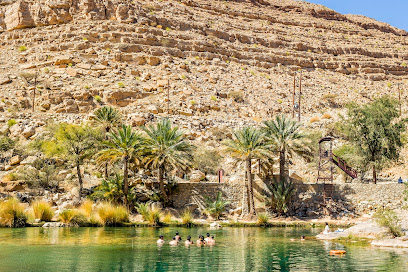
AAl-Hamuda Castle
Explore Al-Hamuda Castle in Jalan Bani Buali - a historical fortress showcasing Oman's architectural brilliance amidst stunning landscapes.
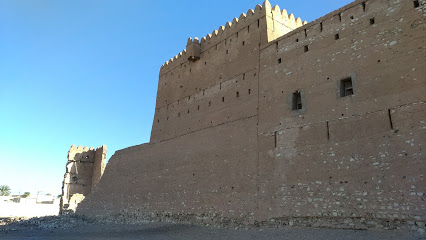
Wadi Shab First Pool
Experience the serene oasis of Wadi Shab First Pool, where crystal-clear waters and stunning landscapes await every traveler in Oman.
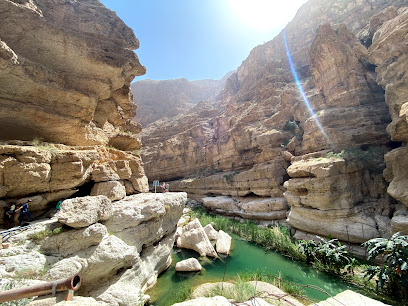
Majlis al Jinn | مجلس الجن
Explore the breathtaking Majlis al Jinn, one of the world's largest underground chambers, in the stunning mountains of Oman.
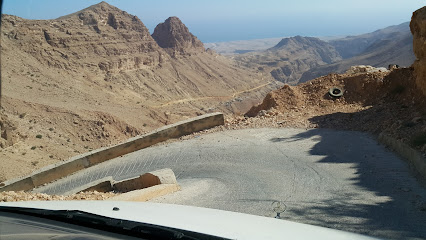
شلالات ميبام Mibam waterfall
Discover the breathtaking beauty of Mibam Waterfall, a serene natural oasis in Oman, perfect for nature lovers and adventure seekers alike.
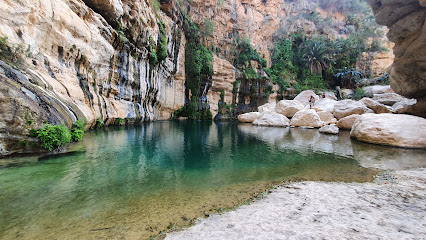
Pink Lake | البحيرة الوردية
Experience the breathtaking beauty of Pink Lake in Al Jumaylah, Oman - a natural wonder with vibrant hues and serene landscapes perfect for nature lovers.
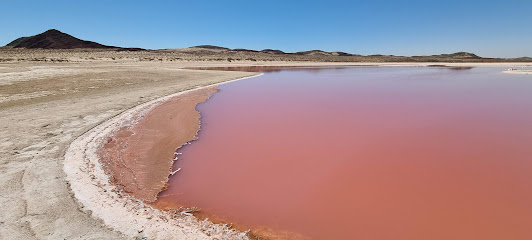
Tiwi Beach | شاطىء طيوي
Discover the tranquil beauty of Tiwi Beach, a hidden gem on Oman's coastline with golden sands and crystal-clear waters perfect for relaxation and adventure.
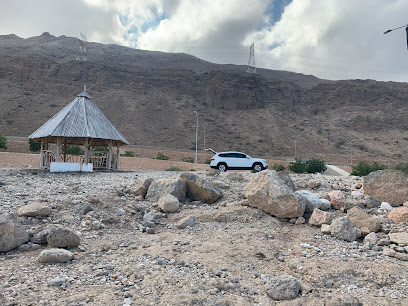
Heart shaped Cave
Explore the Heart Shaped Cave in Tiwi, Oman - a unique natural wonder perfect for adventurers and nature lovers seeking beauty and serenity.
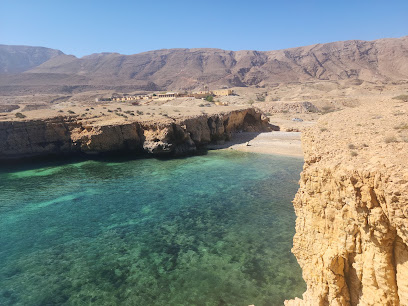
Wadi Hawer
Experience the natural splendor of Wadi Hawer, a stunning oasis in Oman with breathtaking landscapes and tranquil waters, perfect for relaxation and adventure.
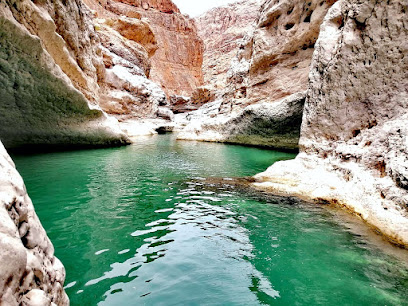
Wadi Shab Cave
Explore the breathtaking Wadi Shab Cave in Tiwi, Oman, where stunning turquoise waters and dramatic cliffs await adventurous travelers.
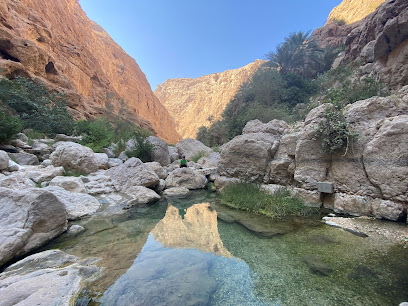
Al Saleel National Park
Discover the serene beauty of Al Saleel National Park, a natural paradise in Oman with lush landscapes and diverse wildlife perfect for adventure and relaxation.
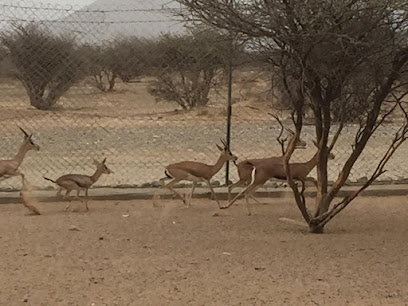
Coastal area view point
Discover the breathtaking beauty of Bimma's Coastal Area View Point, where stunning ocean views meet rugged cliffs in a serene natural setting.
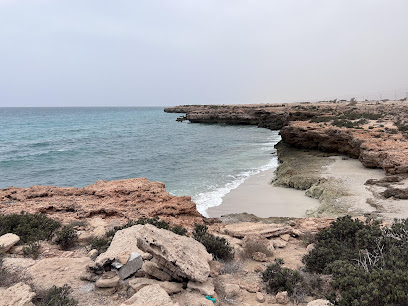
Wadi bani khalid parking
Discover the beauty of Oman at Wadi Bani Khalid Parking, your convenient access point to stunning natural landscapes and crystal-clear waters.
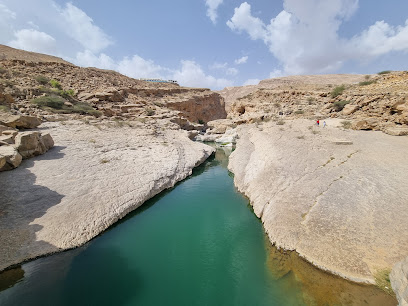
Public Campground
Discover the tranquil beauty of Wadi Bani Khalid's Public Campground, where nature and adventure unite in Oman's stunning landscapes.
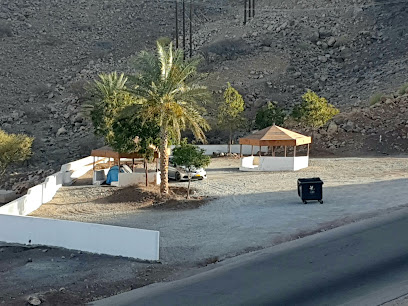
وادي سيق - الكامل الشرقيه
Explore the stunning landscapes and serene beauty of Wadi Siq in Al-Kamel Al-Sharqi, a must-visit hiking destination for nature lovers.
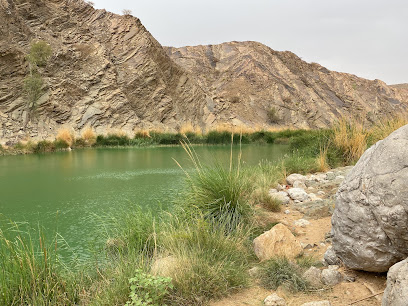
Unmissable attractions to see
Wadi Shab
Explore Wadi Shab, a breathtaking gorge in Oman, known for its stunning landscapes, crystal-clear waters, and adventurous hiking trails.
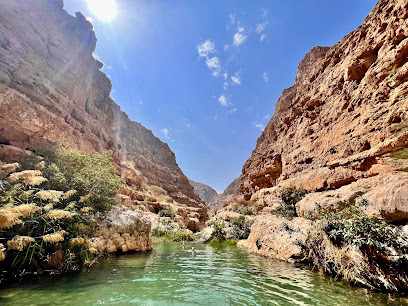
Wadi Ash Shab
Explore the breathtaking beauty of Wadi Ash Shab, a natural oasis in Oman known for its stunning turquoise waters and majestic cliffs.
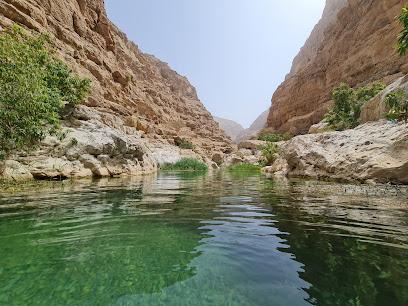
Majlis al Jinn | مجلس الجن
Experience the magic of Majlis al Jinn, one of the world's largest caves, where nature's artistry meets Oman's rich folklore.
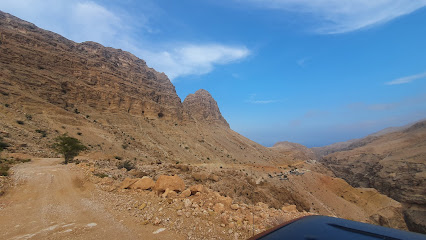
Pink Lake | البحيرة الوردية
Discover the breathtaking Pink Lake in Al Jumaylah, a unique natural wonder that enchants visitors with its vibrant colors and serene beauty.
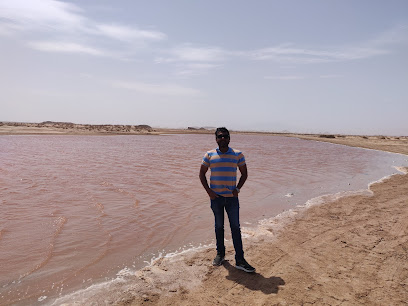
Al Saleel National Park
Experience the tranquility and natural beauty of Al Saleel National Park, a serene oasis in Oman perfect for nature lovers and outdoor enthusiasts.
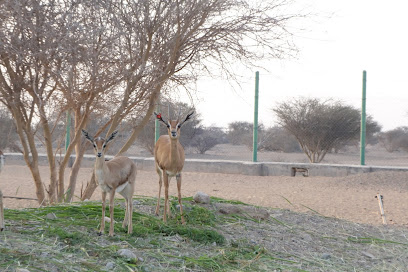
وادي سيق - الكامل الشرقيه
Explore the breathtaking beauty of Wadi Siq, a hiking paradise in Sayq, where stunning landscapes and rich geology await adventurous tourists.
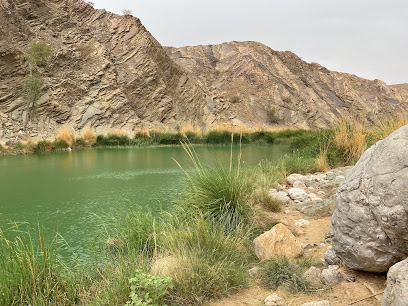
Wadi bani Khaled 2
Explore the serene beauty of Wadi Bani Khaled, Oman’s breathtaking oasis with crystal-clear waters and stunning landscapes perfect for relaxation and adventure.
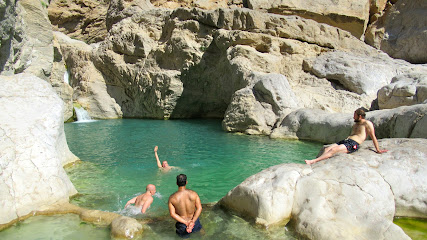
حصاة البرقه في وادي (حاوِر) منطقة الباطن، منطقة سِيق
Discover the cultural treasures of Oman at Al Barqah Museum in Sayq, where history and artistry come together in a serene setting.
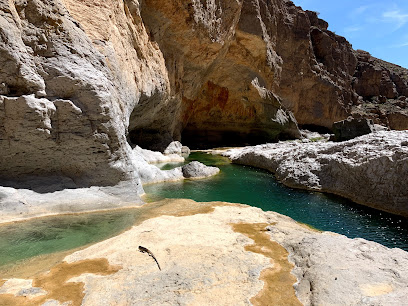
Essential places to dine
Rimal Al Kamil Restaurent مطعم حتروش
Discover authentic Omani flavors at Rimal Al Kamil Restaurant in Jalan Bani Buali - where tradition meets taste.
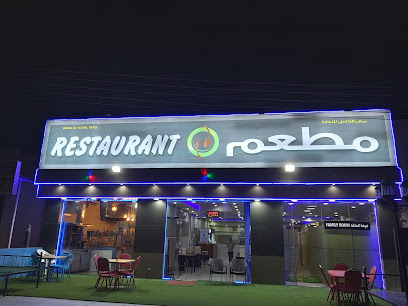
Zaki Restaurant
Experience authentic Middle Eastern flavors at Zaki Restaurant in Jalan Bani Buhassan, where every dish tells a story of rich culinary heritage.
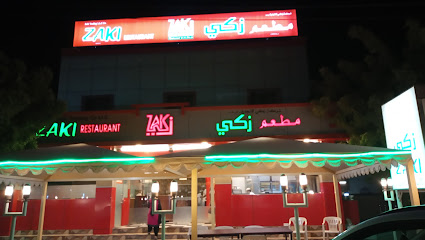
Tiwi Restaurant, Arabic & Asian Food
Experience the best fusion of Arabic and Asian cuisine at Tiwi Restaurant in Oman - a must-visit culinary destination.
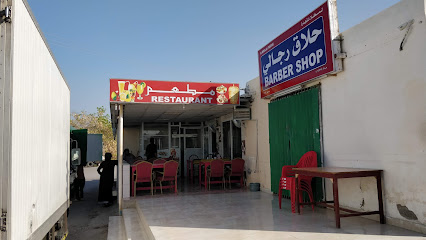
Anwaar Tiwi Restaurant Arabic & Asian food's
Discover the exquisite fusion of Arabic and Asian cuisines at Anwaar Tiwi Restaurant in Oman—where every meal is a celebration of flavor.
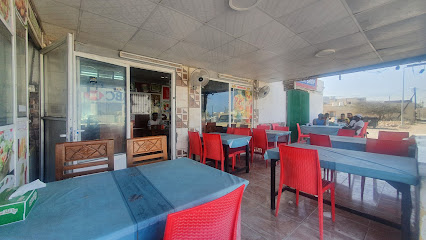
Assayil Mazeera (Al Huty Restaurant)
Discover authentic Omani flavors at Assayil Mazeera (Al Huty Restaurant), set against the stunning backdrop of Wadi Bani Khalid's natural beauty.
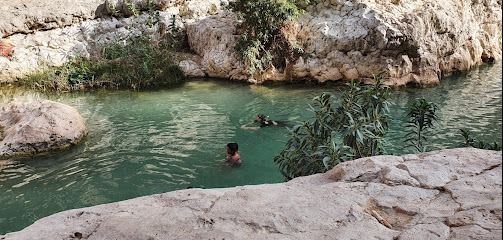
Al Boom Restaurant مطعم البوم
Experience authentic Omani cuisine at Al Boom Restaurant - a delightful dining destination in Jalan Bani Bu Ali.
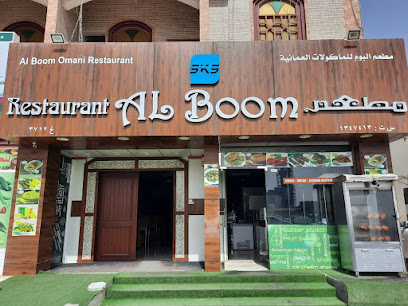
Pakistani Restaurant
Experience authentic Pakistani cuisine in Jalan Bani Buali with rich flavors and warm hospitality at this beloved local restaurant.
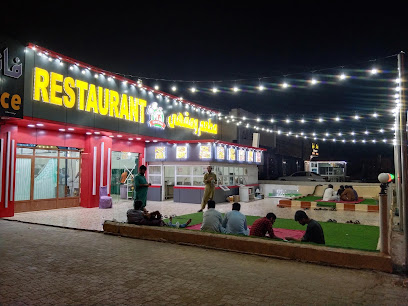
Alkus Cafe مقهى الكوس
Discover authentic Omani flavors at Alkus Cafe, where warm hospitality meets delicious cuisine in a cozy setting.
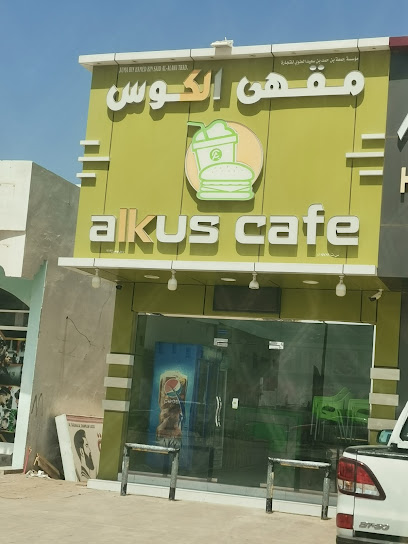
Naseer Bin Saeed Restaurant:імпорт пх
Experience authentic Omani cuisine at Naseer Bin Saeed Restaurant in Tiwi - where every meal tells a story.
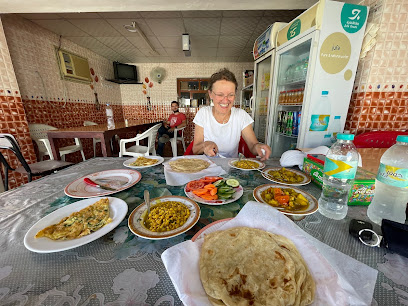
closed for maintenance المطعم مغلق
Experience Wadi Bani Khalid: A breathtaking blend of nature's beauty and Oman's rich culinary traditions.
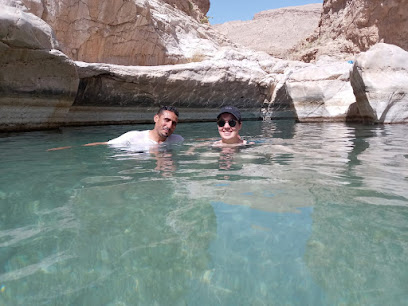
STAR RAYDAN Restaurant & kitchen
Experience authentic Omani flavors at STAR RAYDAN Restaurant & Kitchen - a culinary gem in Jalan Bani Buali offering delicious local dishes.
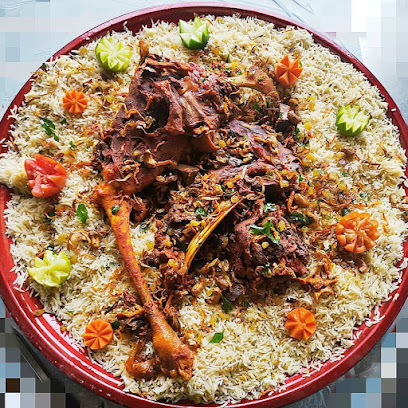
PIONEERS RESTAURANT
Experience authentic Asian cuisine in Wadi Bani Khalid at Pioneers Restaurant – where every dish tells a story.
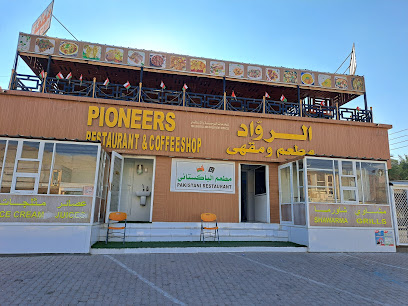
مطعم نسر وادي الشاب
Experience authentic Omani cuisine at مطعم نسر وادي الشاب in Muscat - a culinary journey filled with rich flavors and warm hospitality.
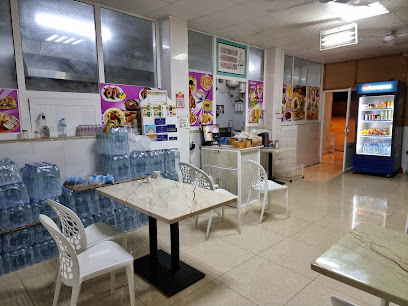
KFC
Savor classic American fast food flavors at KFC in Jalan Bani Buali—your go-to spot for delicious fried chicken and quick meals.
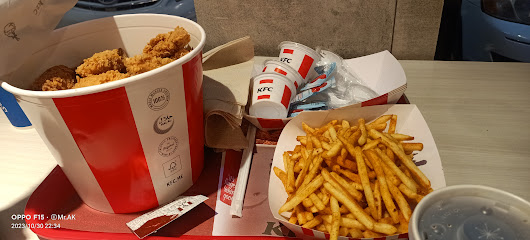
مطعم باكستاني
Discover the rich flavors of authentic Pakistani cuisine at this charming restaurant in Jalan Bani Bu Ali.
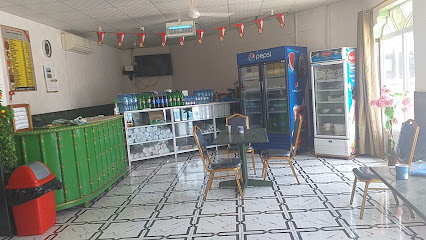
Markets, malls and hidden boutiques
الشاتوش للاحذية و العطور و الهدايا
Explore الشاتوش, the perfect gift shop in Jalan Bani Buhassan, offering unique perfumes, stylish shoes, and memorable souvenirs.
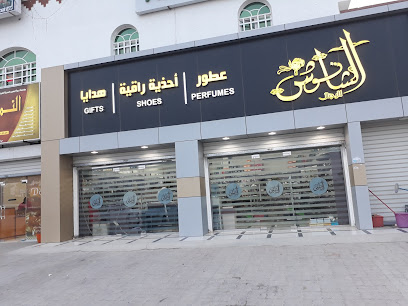
AL ASKANDARIA MODERN CO LLC
Explore Al Askandaria Modern Co LLC, a vibrant shopping mall in Al Kamil Wal Wafi, Oman, offering diverse shopping, dining, and entertainment options.
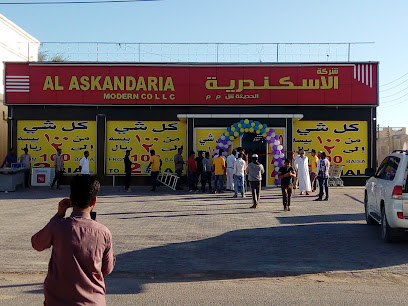
اسواق المها
Discover Eswaq Al-Maha, a shopping mall in Wadi Bani Khalid, blending traditional Omani culture with modern retail offerings.
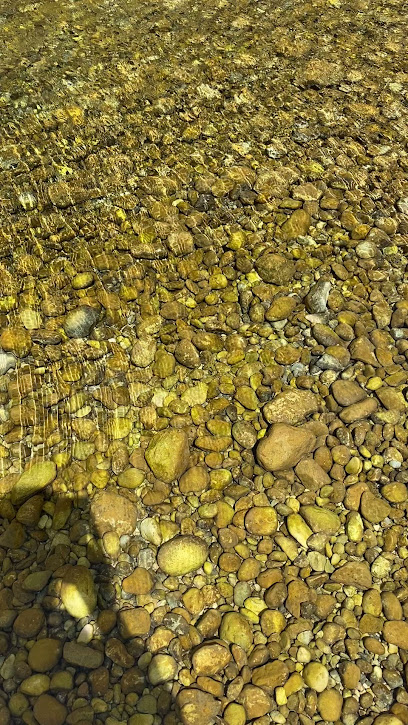
AL QANAS COFFE SHOP
Discover the rich flavors and serene atmosphere of Al Qanas Coffee Shop in the stunning Wadi Bani Khalid, where every sip is a journey.
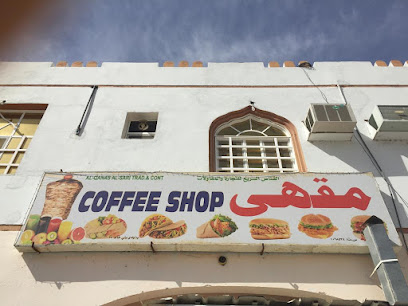
Waznah Mill | محمصة وزنة
Explore Waznah Mill in Al Kamil Wal Wafi for a rich selection of fresh, high-quality nuts and snacks that reflect Omani culture.
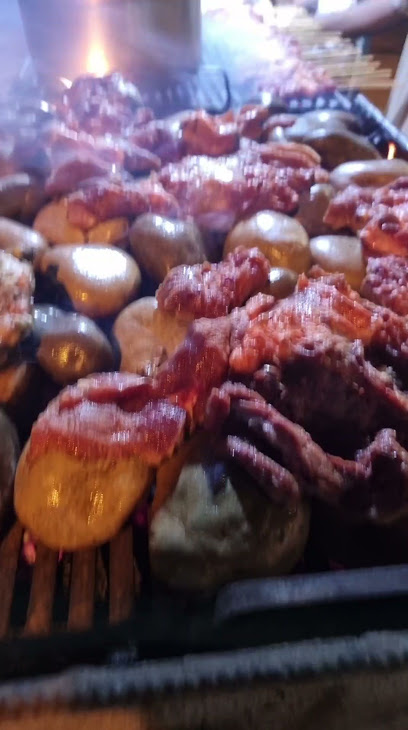
Way to Wadi Bani Khalid
Experience the breathtaking beauty of Wadi Bani Khalid, Oman’s stunning natural oasis with turquoise pools and rich cultural heritage.
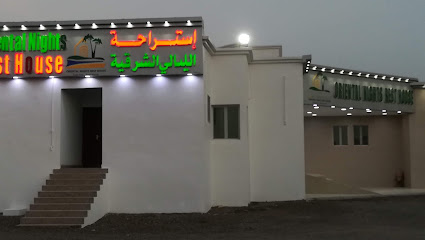
النجوم للشوكولاته و الورود
Discover the exquisite artisanal chocolates and beautiful floral arrangements at Stars of Chocolate and Roses in Al Kamil Wal Wafi.
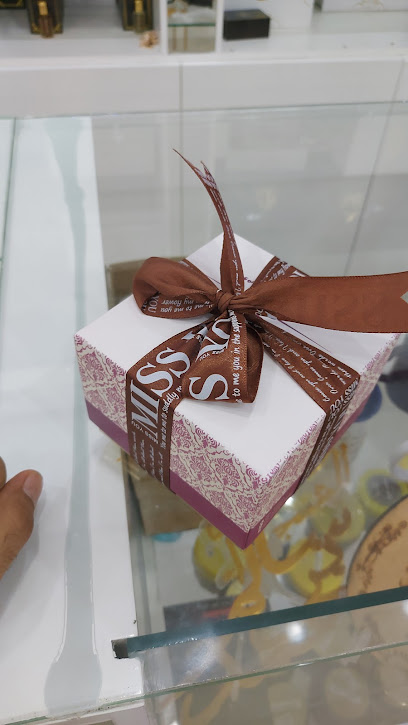
دار الكشخة الراقية
Explore the stylish offerings at دار الكشخة الراقية in Al Kamil Wal Wafi, where contemporary fashion meets local craftsmanship.
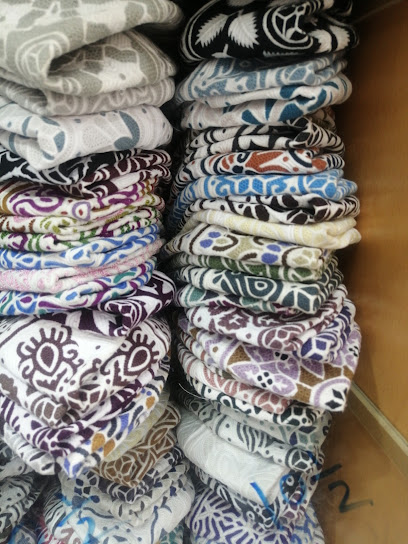
Abu Salah Al Hashmi Foodstuffs
Experience the vibrant flavors of Oman at Abu Salah Al Hashmi Foodstuffs, your go-to supermarket for local and international delights.
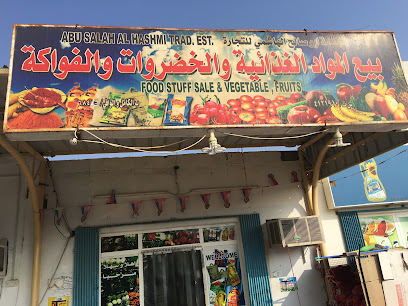
Al Bawaraq Store
Explore the best in home essentials at Al Bawaraq Store in Al Kamil Wal Wafi, where quality meets local charm.
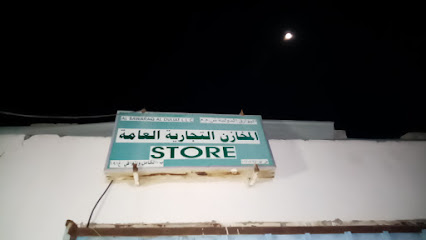
AL HASHMI NATIONAL TOBACCO PRODUCTS
Explore the rich tradition of tobacco culture at Al Hashmi National Tobacco Products in Oman, a unique shopping experience for enthusiasts and curious travelers.
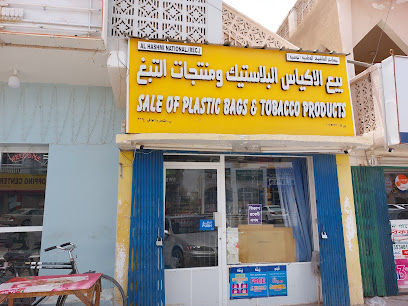
رزمة ورد
Discover unique Omani gifts and souvenirs at رزمة ورد in Wadi Bani Khalid, where local craftsmanship meets charming ambiance.
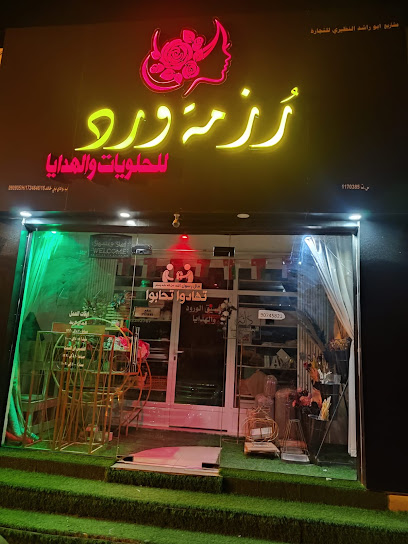
Zain Market
Explore Zain Market in الكامل والوافي for a vibrant shopping experience filled with unique Omani clothing and local charm.
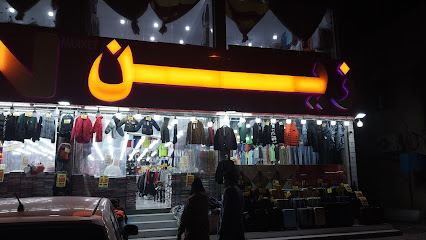
Gift Shops
Discover the unique charm of Jalan Bani Buhassan's gift shops, where traditional craftsmanship meets modern creativity in a vibrant shopping atmosphere.
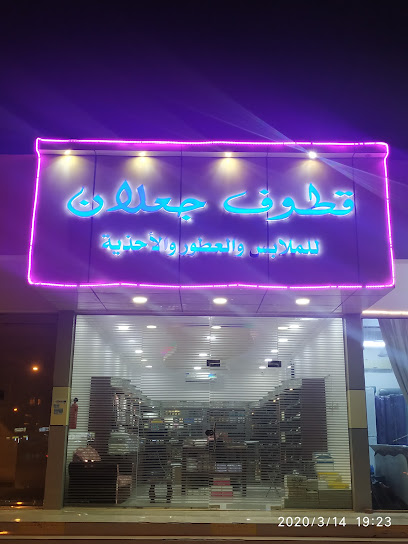
Jotun Multicolor Centre-Al Darjith Trading Co.
Explore a world of colors and quality paints at Jotun Multicolor Centre, your go-to destination for all painting needs in Al Kamil Wal Wafi.

Essential bars & hidden hideouts
Duke's
Discover Duke's in Muscat: A premier gastropub offering a fusion of global flavors and local delights within the elegant Crowne Plaza Hotel.
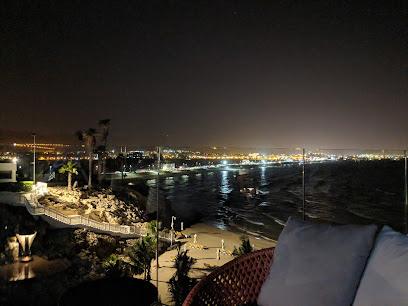
Rimal Al Kamil Restaurant مطعم حتروش
Experience the authentic flavors of Oman at Rimal Al Kamil Restaurant, where traditional dishes meet warm hospitality in Al Kamil Wal Wafi.
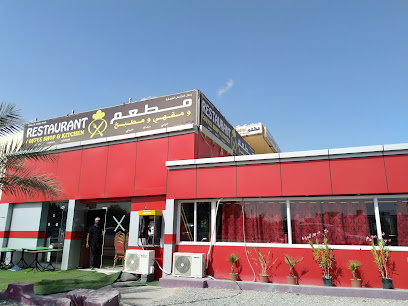
Assayil Mazeera (Al Huty Restaurant)
Experience the authentic flavors of Oman at Assayil Mazeera (Al Huty Restaurant), nestled in the stunning landscapes of Wadi Bani Khalid.
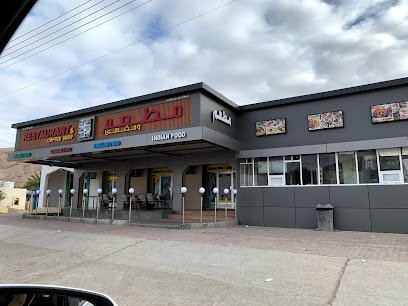
AL RAYDHA RESTAURANT
Experience authentic Omani cuisine at Al Raydha Restaurant in Al Kamil Wal Wafi, where every dish tells a story of flavor and tradition.
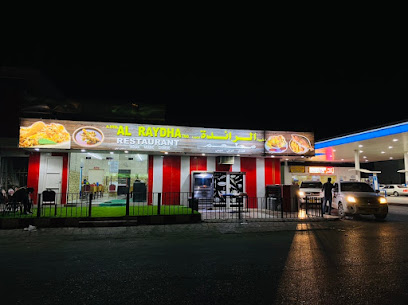
The pride of the Gulf Restaurant (Mullah) grills
Experience the best of Gulf cuisine at Mullah Grills, where delicious grilled dishes and a warm atmosphere await you in Jalan Bani Buhassan.
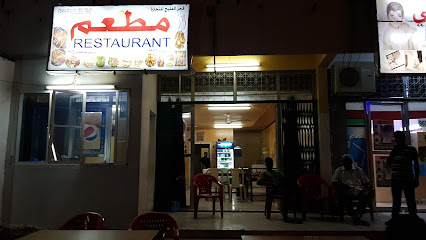
مقهى و مشاوي coffee shop and grills
Discover the unique taste of Omani cuisine at مقهى و مشاوي, a cozy coffee shop and grill in Jalan Bani Buhassan.
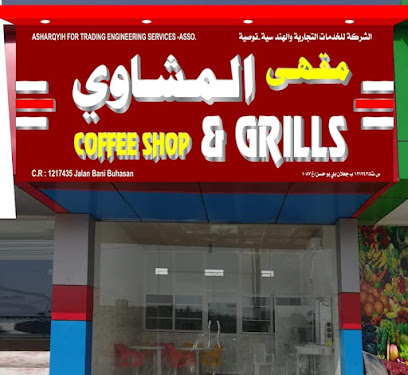
Jas Cafe Fastfood
Discover the delicious fast food delights at Jas Cafe Fastfood in Jalan Bani Buhassan, where every bite is a flavor-packed adventure.
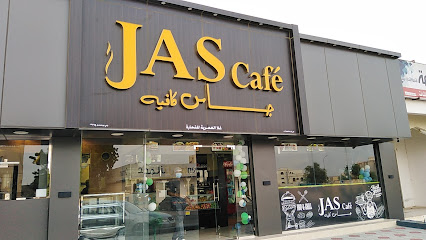
FFC
Experience the authentic flavors of Oman at FFC in Al Kamil Wal Wafi, where culinary excellence meets local hospitality.
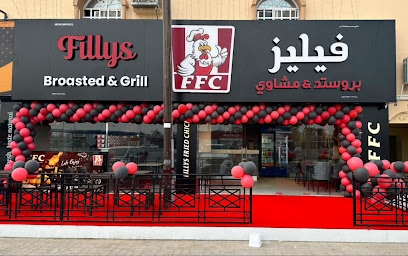
Wadi Bar
Experience the vibrant nightlife at Wadi Bar in Muscat, where refreshing drinks and a welcoming atmosphere await every visitor.
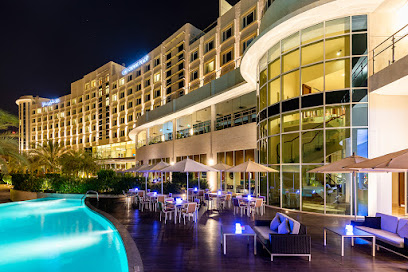
Friends Pool & Bar
Experience the perfect blend of relaxation and entertainment at Friends Pool & Bar in Muscat, featuring refreshing cocktails, karaoke, and a vibrant atmosphere.
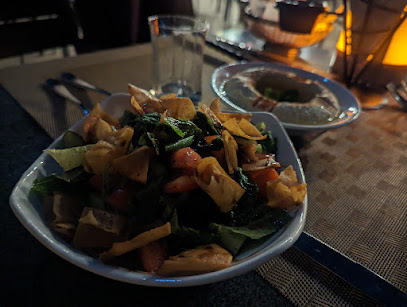
Jas Thattukada
Experience the warmth of Al Kamil Wal Wafi at Jas Thattukada, where delightful coffee and fast food await in a cozy setting.
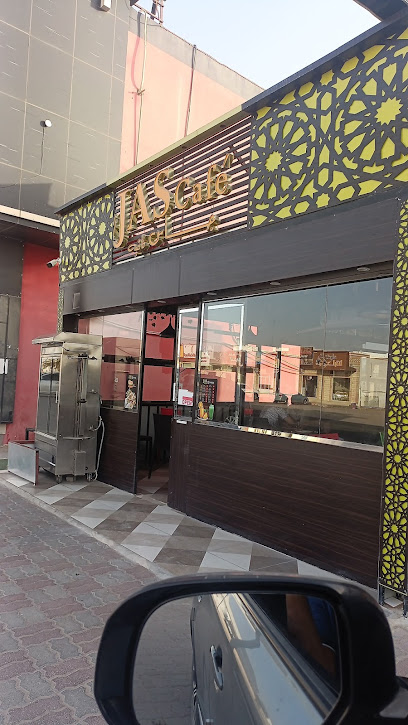
Karak Cafe
Experience the best pizza in Jalan Bani Buhassan at Karak Cafe, where every slice is a flavorful journey.
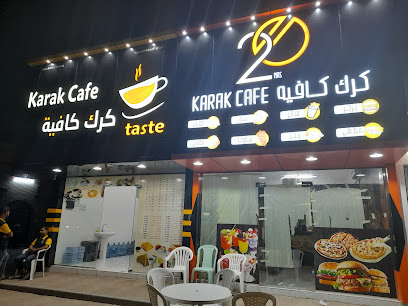
Wadi Bani khalid hotel
Discover the serene Wadi Bani Khalid Hotel, where exceptional coffee meets breathtaking natural beauty in the heart of Oman.
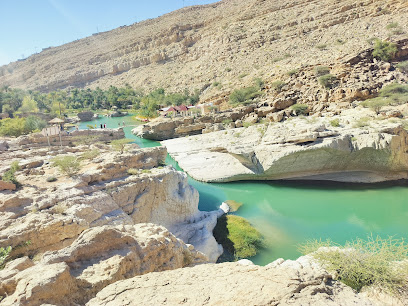
WADI AL TARIMDI TRAD
Experience authentic Omani cuisine at Wadi Al Tarimdi Trad, a charming restaurant in Al Kamil Wal Wafi, where flavors and hospitality unite.

Local Phrases about Wadi Bani Khalid
-
- Helloمرحبا
[marhaban] - Goodbyeوداعا
[wadaeana] - Yesنعم
[naam] - Noلا
[laa] - Please/You're welcomeمن فضلك
[min fadlik] - Thank youشكرا
[shukran] - Excuse me/Sorryعذرا
[aaithirana] - How are you?كيف حالك؟
[kayfa halak?] - Fine. And you?بخير. وأنت؟
[bikhayr. wa ant?] - Do you speak English?هل تتكلم الإنجليزية؟
[hal tatakallam al'inglizia?] - I don't understandلا أفهم
[laa afham]
- Helloمرحبا
-
- I'd like to see the menu, pleaseأرغب في رؤية القائمة، من فضلك
[urghab fi ru'yyat alqaimah, min fadlik] - I don't eat meatأنا لا آكل اللحم
[ana la aakul allahm] - Cheers!صحتين!
[sihatayn] - I would like to pay, pleaseأرغب في الدفع، من فضلك
[urghab fi alduf, min fadlik]
- I'd like to see the menu, pleaseأرغب في رؤية القائمة، من فضلك
-
- Help!النجدة!
[alnajdah!] - Go away!انصرف!
[ansarif!] - Call the Police!اتصل بالشرطة!
[itassil bialshurta!] - Call a doctor!اتصل بطبيب!
[itassil biatibib!] - I'm lostلقد ضللت
[laqad dalealt] - I'm illأنا مريض
[ana mareed]
- Help!النجدة!
-
- I'd like to buy...أنا أرغب في شراء...
[ana urghab fi shira...] - I'm just lookingأنا فقط أتطلع
[ana faqat atatala] - How much is it?كم سعرها؟
[kam si'raha?] - That's too expensiveهذا غالي جدا
[hatha ghali jidana] - Can you lower the price?هل يمكنك خفض السعر؟
[hal yumkinuk khafd alsi'ra?]
- I'd like to buy...أنا أرغب في شراء...
-
- What time is it?كم الساعة؟
[kam alsae'ah?] - It's one o'clockالساعة الواحدة
[alsae'ah alwaahidah] - Half past (10)نصف العاشرة
[nisf alaashirah] - Morningالصباح
[alsaabah] - Afternoonبعد الظهر
[baed althuhr] - Eveningالمساء
[almasa'] - Yesterdayأمس
[ams] - Todayاليوم
[alyawm] - Tomorrowغدا
[ghadan] - 1واحد
[wahid] - 2اثنان
[ithnan] - 3ثلاثة
[thalatha] - 4أربعة
[arba'a] - 5خمسة
[khamsa] - 6ستة
[sitta] - 7سبعة
[sab'a] - 8ثمانية
[thamania] - 9تسعة
[tasia] - 10عشرة
[ashara]
- What time is it?كم الساعة؟
-
- Where's a/the...?أين الـ...؟
[ayna al...?] - What's the address?ما هو العنوان؟
[ma hu aluannan?] - Can you show me (on the map)?هل يمكنك أن تريني (على الخريطة)؟
[hal yumkinuk 'an taraeeni (ealaa alkhareeta)?] - When's the next (bus)?متى يأتي الحافلة التالية؟
[mata yaeti alhafilat altaliat?] - A ticket (to ....)تذكرة (إلى ....)
[tazkirat ('iilaa ....)]
- Where's a/the...?أين الـ...؟
History of Wadi Bani Khalid
-
Wadi Bani Khalid has been home to human settlements for thousands of years. Archaeological evidence points to early Bronze Age communities that thrived on the wadi's fertile grounds. These early inhabitants were adept at utilizing the natural resources, including the abundant water supply from the perennial springs, for agriculture and sustenance.
-
One of the most remarkable feats of traditional engineering in Wadi Bani Khalid is the aflaj irrigation system, which dates back over 2,000 years. These ancient water channels harness the flow from natural springs and distribute it to farmlands and date palm groves, ensuring a stable and reliable water supply. The aflaj system is a testament to the ingenuity of the region's early inhabitants and remains in use to this day.
-
With the arrival of Islam in the 7th century, Wadi Bani Khalid became an important center for the spread of Ibadism, a branch of Islam distinct to Oman. The wadi's mosques and madrasas (Islamic schools) became focal points for religious education and community gatherings. The historic Al Hudayb Mosque, with its simple yet elegant architecture, stands as a symbol of this era.
-
During the Ya'aruba Dynasty in the 17th century, Oman experienced a period of prosperity and military strength. Wadi Bani Khalid, due to its strategic location, saw the construction of several fortifications and watchtowers. These structures were built to protect the wadi from potential invasions and to safeguard the valuable water resources. The remnants of these fortifications can still be explored today, offering a glimpse into the region's defensive strategies.
-
The 19th century was marked by tribal conflicts and power struggles within Oman. Wadi Bani Khalid was not immune to these turbulent times. The Bani Khalid tribe, after whom the wadi is named, played a significant role in these conflicts, often clashing with neighboring tribes over territory and resources. These conflicts have shaped the social and political landscape of the region, and tales of bravery and strategy are still recounted by the local community.
-
In recent decades, Wadi Bani Khalid has seen a surge in development and tourism. The Omani government has invested in infrastructure to make the wadi more accessible to visitors, while also preserving its natural and cultural heritage. The crystal-clear pools, lush date palm groves, and traditional villages attract tourists from around the world, eager to experience the unique blend of history, culture, and natural beauty that Wadi Bani Khalid offers.
Wadi Bani Khalid Essentials
-
Wadi Bani Khalid is located in the Al Sharqiyah region of Oman. The nearest major city with an international airport is Muscat, which is approximately 200 kilometers away. From Muscat, you can rent a car and drive to Wadi Bani Khalid, which typically takes around 2.5 to 3 hours. Alternatively, you can hire a taxi or arrange for a private transfer through your hotel or a tour operator.
-
While Wadi Bani Khalid itself is best explored on foot, especially the wadi and its pools, getting around the area generally requires a car. Renting a car is a convenient option and provides the most flexibility. Taxis are available but may be less frequent, especially in more remote areas. Ensure your vehicle is equipped for off-road driving if you plan to explore beyond the main areas.
-
The official currency in Oman is the Omani Rial (OMR). Credit cards are accepted in some hotels and larger establishments, but it is advisable to carry cash, especially in smaller shops and remote areas. ATMs can be found in larger towns and cities, so it's wise to withdraw sufficient cash before heading to Wadi Bani Khalid.
-
Wadi Bani Khalid is generally a safe destination for tourists. However, it is always advisable to take standard precautions such as avoiding isolated areas at night and keeping an eye on your belongings. There are no specific high-crime areas targeting tourists, but it's always best to stay vigilant and aware of your surroundings.
-
In case of emergency, dial 9999 for immediate assistance. The nearest medical facilities are located in Ibra, a town about 90 kilometers away. It is highly recommended to have travel insurance that covers medical emergencies. For minor health issues, carry a basic first aid kit as pharmacies may not be easily accessible in remote areas.
-
Fashion: Do dress modestly, especially when visiting villages and religious sites. Avoid wearing revealing clothing. Religion: Do respect local customs and traditions. During prayer times, avoid loud noises and be respectful. Public Transport: Public transport options are limited; plan your travel accordingly. Greetings: Do greet people with a friendly 'As-Salaam-Alaikum.' A handshake is common but wait for the other person to extend their hand first. Eating & Drinking: Do try local Omani cuisine and accept food offerings graciously. Don't eat or drink in public during the daylight hours of Ramadan.
-
To experience Wadi Bani Khalid like a local, visit the wadi early in the morning to avoid the crowds and the heat. Engage with locals, who are often very welcoming and willing to share stories about their culture and traditions. Don't miss out on trying the local dates and kahwa (Omani coffee). If you are visiting during a festival, make sure to participate in the celebrations for an authentic experience.
Trending Landmarks in Wadi Bani Khalid
-
Wadi Bani Khalid Pools & Cave
-
AAl-Hamuda Castle
-
Wadi Shab First Pool
-
Majlis al Jinn | مجلس الجن
-
شلالات ميبام Mibam waterfall
-
Pink Lake | البحيرة الوردية
-
Tiwi Beach | شاطىء طيوي
-
Heart shaped Cave
-
Wadi Hawer
-
Wadi Shab Cave
-
Al Saleel National Park
-
Coastal area view point
-
Wadi bani khalid parking
-
Public Campground
-
وادي سيق - الكامل الشرقيه
Nearby Cities to Wadi Bani Khalid
-
Things To Do in Muscat
-
Things To Do in Nizwa
-
Things To Do in Bahla
-
Things To Do in Rustaq
-
Things To Do in Ibri
-
Things To Do in Sohar
-
Things To Do in Al Ain
-
Things To Do in Fujairah
-
Things To Do in Khor Fakkan
-
Things To Do in Dibba Al-Fujairah
-
Things To Do in Ras Al Khaimah
-
Things To Do in Ajman
-
Things To Do in Sharjah
-
Things To Do in Dubai
-
Things To Do in Umm Al Quwain








